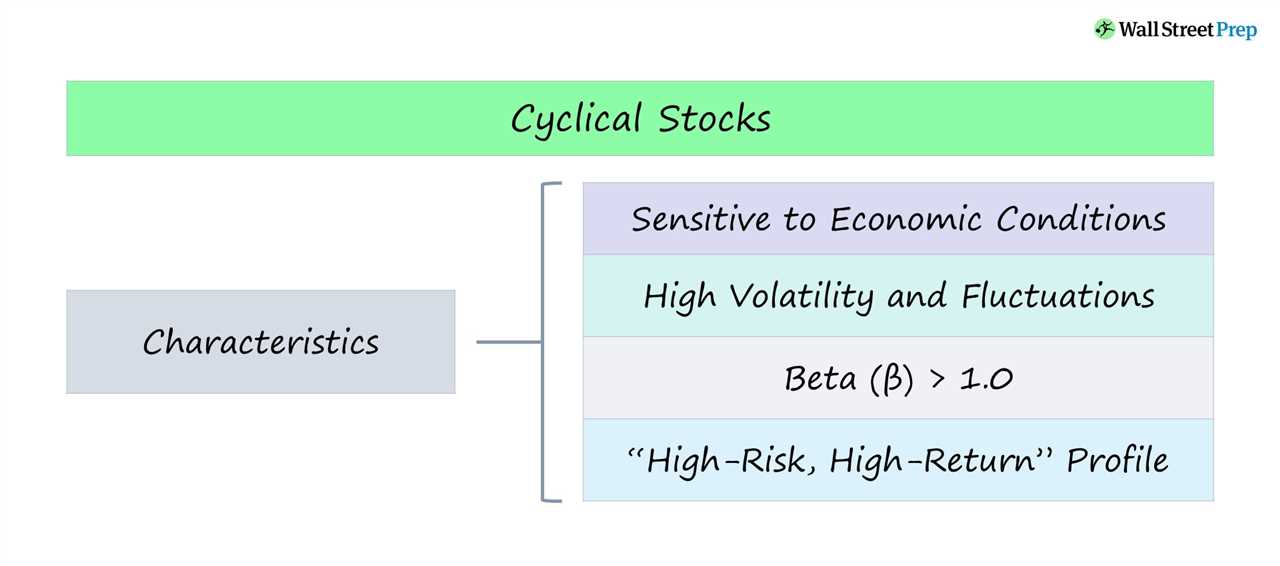Definition and Characteristics of Cyclical Industries
Characteristics of Cyclical Industries
1. Sensitivity to Economic Conditions: Cyclical industries are highly sensitive to changes in the overall economy. When the economy is booming, these industries tend to thrive, experiencing high demand and increased profitability. Conversely, during economic downturns, these industries often suffer, facing reduced demand and declining profits.
2. Volatile Revenues and Profits: Due to their sensitivity to economic conditions, cyclical industries often experience significant fluctuations in their revenues and profits. During periods of economic expansion, revenues and profits can soar, while during recessions, they can plummet. This volatility makes it challenging for businesses in cyclical industries to plan and forecast their financial performance.
4. Capital Intensive: Many cyclical industries, such as manufacturing and construction, require significant capital investments. These industries often rely on expensive equipment, machinery, and infrastructure to operate. The cyclicality of these industries can pose challenges in managing these capital investments, as downturns may result in underutilized assets and financial strain.
5. Sector-Specific Factors: While the overall economy plays a significant role in driving cyclical industries, sector-specific factors can also influence their cyclicality. For example, in the automotive industry, factors such as consumer preferences, technological advancements, and government regulations can impact the cyclical nature of the sector.
Conclusion

Examples of Cyclical Industries
Cyclical industries are highly sensitive to changes in the overall economy and tend to experience periods of expansion and contraction. These industries are heavily influenced by factors such as consumer spending, business investment, and overall economic growth. Here are some examples of cyclical industries:
1. Automotive Industry
The automotive industry is a classic example of a cyclical industry. During economic upturns, consumers have more disposable income, which leads to increased demand for cars. Conversely, during economic downturns, consumers tend to cut back on big-ticket purchases like cars, leading to a decline in demand. The automotive industry is also heavily dependent on factors such as interest rates, fuel prices, and consumer confidence.
2. Construction Industry
The construction industry is another example of a cyclical industry. During economic expansions, there is increased demand for new residential and commercial buildings, leading to growth in the construction sector. However, during economic downturns, construction activity tends to slow down as businesses and individuals cut back on new projects. The construction industry is also influenced by factors such as interest rates, government spending on infrastructure projects, and population growth.
3. Travel and Tourism Industry

The travel and tourism industry is highly cyclical and sensitive to economic conditions. During periods of economic growth, consumers have more disposable income to spend on travel and vacations, leading to increased demand for flights, hotels, and other travel-related services. However, during economic downturns, consumers tend to cut back on discretionary spending, including travel. The travel and tourism industry is also influenced by factors such as exchange rates, fuel prices, and geopolitical events.
4. Retail Industry
The retail industry is another example of a cyclical industry. During economic expansions, consumers have more confidence and disposable income, leading to increased spending on retail goods. However, during economic downturns, consumers tend to cut back on non-essential purchases, leading to a decline in retail sales. The retail industry is also influenced by factors such as consumer sentiment, employment levels, and online shopping trends.

Emily Bibb simplifies finance through bestselling books and articles, bridging complex concepts for everyday understanding. Engaging audiences via social media, she shares insights for financial success. Active in seminars and philanthropy, Bibb aims to create a more financially informed society, driven by her passion for empowering others.
